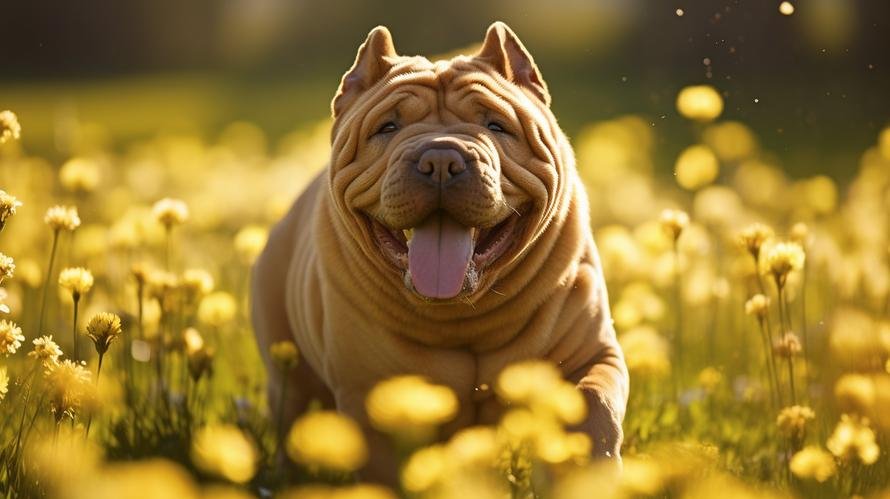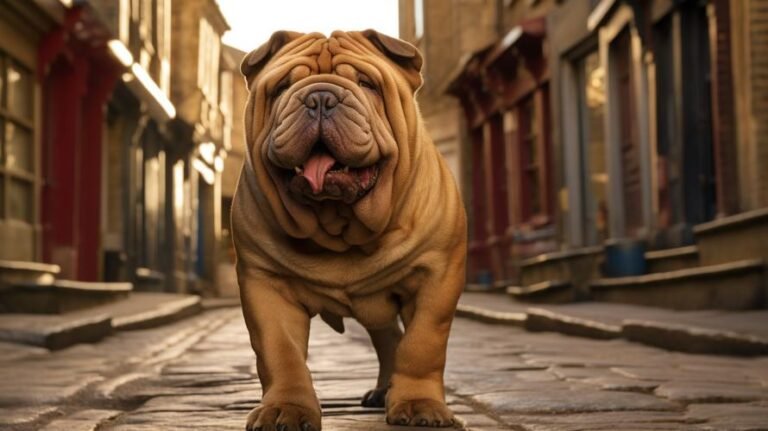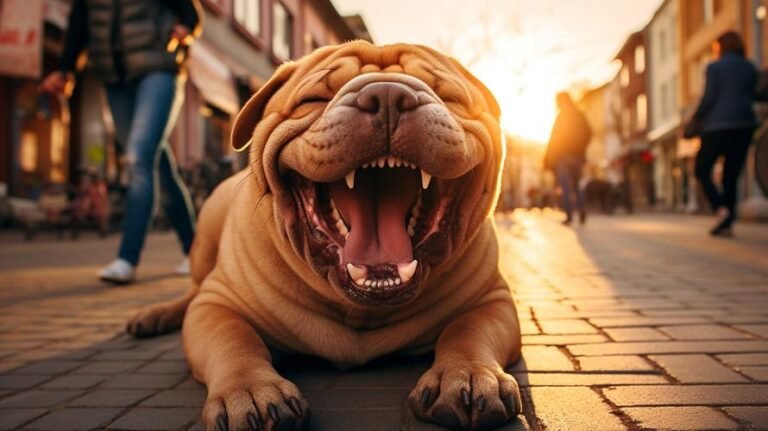“Did you know that one of the world’s most ancient breeds has a history tied to Chinese royalty and a squeezy teddy bear texture? That’s right! We’re talking about the uniquely wrinkled Shar-Pei, a breed that draws attention for its distinctive, adorable looks. But behind those deep-set eyes and furrowed frown, lurks a temperament that’s often misunderstood. Let’s dispel some of this mystery and find out; is the Shar-Pei aggressive?
Before we plunge into understanding this intriguing breed, let’s take a brief tour of the Shar-Pei’s history. It’s believed that the Shar-Pei has been around for hundreds of years, dating back to the Han Dynasty in China. These dogs were multi-purpose animals, serving as hunters, herders, and protectors. Later, they were unfortunately used for dog fighting. It’s this fighting lineage that feeds the speculation about their aggression today.
However, their perceived aggression likely comes from a misunderstanding of the Shar-Pei’s natural demeanor. Shar-Peis are typically reserved and independent. They are fiercely loyal, perhaps to a fault, having been bred to protect their families. It’s their inherent instinct to guard their loved ones that often gets misinterpreted as aggression. Let’s reveal the temperament of a Shar-Pei and its unique traits.
Firstly, it’s important to remember that every Shar-Pei is one-of-a-kind, just like us humans. While temperament can largely depend on genetics, the surroundings and upbringing of the dog also play a pivotal role. A Shar-Pei raised in a loving, well-adjusted family will be sociable and well-behaved. However, a poorly socialized Shar-Pei could potentially develop behavioral issues.
Shar-Peis are intelligent dogs, known for their keen observation skills. Their intelligence combined with their instinctual wariness of strangers can make them seem standoffish or even aggressive. However, a well-adjusted Shar-Pei will be discerning rather than hostile, perceptive rather than threatening. Think of them as the canine version of a bodyguard, always vigilant and protective of their family!
Most Shar-Peis are rather aloof towards strangers, but with early and consistent socialization, they can learn to accept new people and situations calmly. Puppy socialization classes can be a beneficial part of your Shar-Pei’s upbringing, teaching them crucial social skills and promoting friendly interactions.
Training is another key aspect of molding your Shar-Pei’s temperament. Shar-Peis are known to be stubborn, and this streak can sometimes result in defiance. They respond best to positive reinforcement training methods, which promote desired behaviors through rewards. With the right mix of patience, consistency, and rewards, Shar-Peis can be well-mannered and obedient companions.
Furthermore, physical exercise plays a crucial role in managing the energy levels of a Shar-Pei. Regular walks and playtime can help channel their energy positively, preventing any unruly behavior. An under-exercised or bored Shar-Pei might resort to destructive behaviors as an outlet for its pent-up energy.
On a side note, Shar-Peis are famous for their “hippopotamus” muzzle and wrinkly skin. However, these same wrinkles can harbor bacteria and yeast if not kept clean, leading to skin infections. Regular grooming and skincare are necessary to keep your Shar-Pei healthy and happy.
In conclusion, it’s unjust to label Shar-Peis as aggressive, instead, they are loyal protectors, intelligent observers, and loving companions to those who understand and respect their independent spirit. Like any breed, a well-socialized, properly trained, and cared-for Shar-Pei can be an amazing family member. If you choose to welcome this ancient Chinese breed into your life, patience, love, and an understanding of their unique needs will help unravel the true character behind those expressive, wrinkled brows.”



